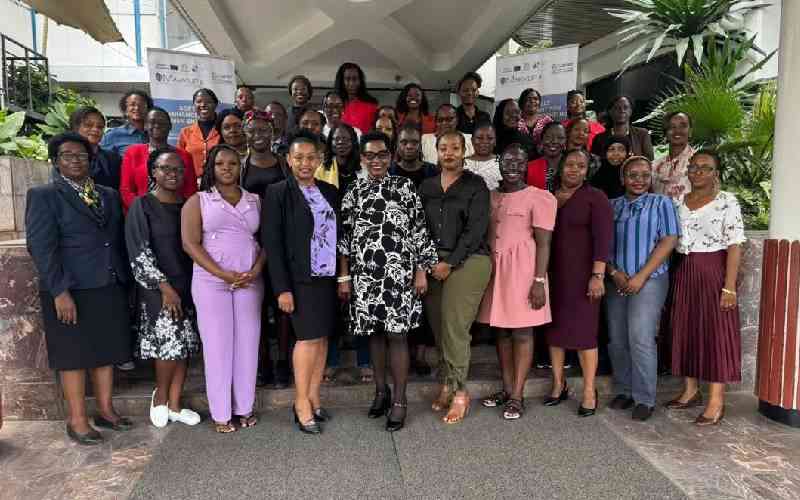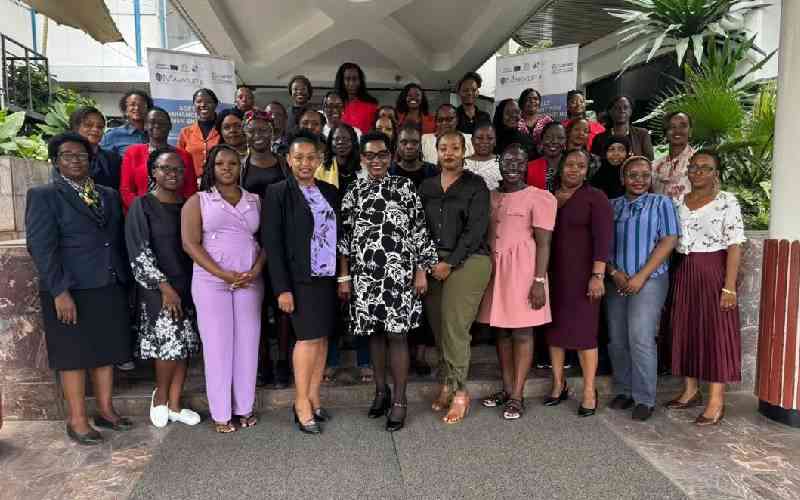
Participants during the launch of the regional master Training of Trainers by the SheTrades initiative by International Trade Centre in partnership with the East African Women in Business Platform, in Nairobi. [Nanjinia Wamuswa, Standard]
Women entrepreneurs are at the heart of East Africa’s economic growth and innovation, yet many face persistent challenges that limit their competitiveness.
To help close this gap, the Market Access Upgrade Programme (MARKUP II) has launched a new initiative to strengthen market-related soft skills for women entrepreneurs in Burundi, Kenya, Rwanda, South Sudan, Tanzania and Uganda. MARKUP II is a regional programme designed to drive inclusive and sustainable economic growth in the East African Community (EAC).
Funded by the European Union and implemented by the International Trade Centre (ITC) in collaboration with the EU Delegation to the EAC, the EAC Secretariat, and partner state governments, the programme builds on the successes of MARKUP I.
It focuses on overcoming trade barriers, supporting value addition, ensuring standards compliance, and enhancing market access for priority export sectors such as avocado, cocoa, coffee, essential oils, horticulture, leather, packaging, spices, and tea. As part of this broader effort, the ITC SheTrades initiative, in partnership with the East African Women in Business Platform (EAWiBP), is introducing a Master Training Programme to strengthen women entrepreneurs’ communication and leadership capabilities. Two trainers from each participating country will be prepared to deliver the ‘Communicating About My Business’ module to women-led businesses in MARKUP II sectors.
Prisca Mbaga from the EAC Secretariat says soft skills, such as effective communication, negotiation, leadership, and self-promotion, are vital for building strong relationships with customers, partners, and employees.
However, women entrepreneurs in the region often face unique barriers, including perceptions of competence: Women are frequently judged as less capable despite equal qualifications and experience and self-confidence and visibility: many women find it difficult to promote themselves and their businesses. Another challenge is a lack of assertiveness in negotiations; limited confidence in business settings can hinder career advancement and restrict business growth. To address these issues, the programme will launch with a three-day Regional Training of Trainers for 12 master trainers, followed by national workshops reaching 30 women-led businesses in each of the six countries.

